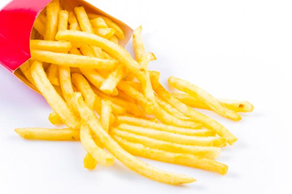 My son was hungry and in a hurry. He ordered the double cheeseburger meal with fries in the drive thru; what’s the harm?
My son was hungry and in a hurry. He ordered the double cheeseburger meal with fries in the drive thru; what’s the harm?
It had been a couple decades since I swore off this kind of cheap fast food and I wanted to tell him why. The link to water quality isn’t obvious.
Central Minnesota has a lot of sandy soil that is prime for growing potatoes, especially for the french-fried kind, uniformly long to produce those ketchup conveyors that we all crave. Potatoes are also easy to harvest in sand with no mud clinging to the skins. Fungal issues common to potatoes are minimized in soil that drains quickly.
As a result, the DNR was recently swamped with applications for new irrigation wells in an area known as the Pineland Sands located in Becker, Cass, Hubbard, and Wadena counties. Potatoes require a lot of water, nitrogen fertilizer, and fungicide. Water is pumped from the ground and chemicals are sometimes added immediately.
Let’s focus for now on nitrogen. It helps crops grow but is a notoriously “leaky” fertilizer. A large portion of what is applied gets away from the crop and leaks into the surface and groundwater, especially in sandy soil.
The DNR was planning to conduct an environmental assessment to evaluate the effects of groundwater appropriation projects proposed by R.D. Offutt Co. (RDO), a North Dakota-based agriculture company. The regulators were concerned with potential impacts of converting land from commercial timber production to irrigated cropland. Increased groundwater contamination by nitrogen fertilizer, and increased stress on trout and other aquatic life by diverting the flow of cold groundwater into streams, were of concern.
RDO has voluntarily reduced the number of new water appropriation permit applications from 54 to five. Given this reprieve, the DNR is designing a study focused on several key areas to determine the effects of increased irrigated crop production and land conversion in this area. The Minnesota Dept. of Agriculture is also working with RDO and has designed its own study of those effects. Finding a way to have both agriculture and clean water is the goal.
In the meantime, I’m reducing the demand for long skinny fries. Freshwater Society will continue to pay attention to the DNR study design and execution.
— Carrie Jennings, research and policy director